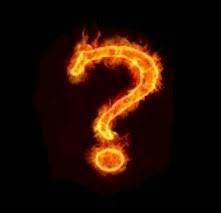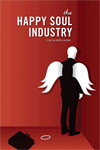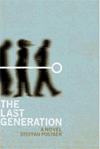The Burning Question
September 19, 2020

The non-addict asks what is the meaning of life? The addict asks: Is this all there is? You called this many things: frustration, dissatisfaction, expectation… the yearning. Desiring something else. More. These unmet desires found respite in drugs and alcohol, albeit temporarily. But it was better than the alternative, or so it always seemed at the time, all the time.
When you finally found a church basement full of others like you, you thought: At last I am not the only one asking this question! It was the right idea, this revelation – a solid first draft. Alas, the yearning remained, humming like a generator, at times hissing, demanding, always there, always on.
Nor could you placate it with a Higher Power, not sufficiently. Your God wasn’t big enough. Is still not big enough. Would never be. But then came a realization as central as the question itself. It wasn’t that you stop asking: Is this all there is? But rather that you begin answering: Yes, this is all there is. And so be it.
Waking Up a ‘7’ / An Agnostic’s View on Serenity & Sobriety
September 10, 2020
It’s easier to love the mystery than be smitten by a prophecy.
I used to wake up fearful, painfully wondering how I might endure the day, inevitably turning to drugs and alcohol to relieve my stress, thus beginning the vicious cycle of addiction another 24 hours. That was my reality. It is one every addict and alcoholic knows sadly and deeply. I was in the grip of a Higher Power that punished me and then saved me, over and over again. Evil spirits brought me to my knees, in a hideous caricature of prayer.
Is it any wonder Bill Wilson deduced that something stronger than spirits was required to relieve us from their bondage? He chose a spirit that was holy. God. Recovery is really just a grand replacement strategy (fellowship in place of barrooms, service before self, and so on), so I totally get the idea that only a supreme power can usurp another.
Only one problem: What if there isn’t a God?
In AA meetings, I joke that on good days I’m agnostic. Yet, measuring my serenity on a scale of 1 to 10, most days I wake up a 7. All days I wake up sober. How is that possible? Being reasonably happy and sober while being reasonably uncertain about God. Without question AA saved my life. With many questions did not God.
“God Is or He Isn’t.”
It’s one of several lines in the Big Book of Alcoholics Anonymous I bristle at. There aren’t many mind you. But this statement has always felt religious, not spiritual. Dogmatic. God didn’t make such a claim. He, She or It wouldn’t. A person did. Came to believe that a power greater than ourselves could restore us to sanity. Almost every thought, if not word, in Step 2 belies the absolutism of God is or He isn’t. “Came to” and “could” seldom precede demands.
God, like truth and love, is a big idea – the biggest. But they are all concepts, human constructs open to interpretation and gradations of meaning. In 12-Step Recovery, we are beseeched to make amends to people we have harmed “wherever possible, except when to do so would injure them or others.” The truth, therefore, ought to be parsed. A homicide may be murder or manslaughter, voluntary or involuntary. Which is truer becomes a matter of opinion. Conditional love is still love, is it not? Maybe not pure love but better than no love at all. Big ideas are not absolute; they are flexible. As is God and the belief in God.
The ultimate leap of faith, God remains improvable. “Coming to believe in a power greater than yourself” is a process, not an outcome. Many people have gotten sober without subscribing to an all or nothing God, including me. Scores have achieved long-term sobriety without God at all. They too wake up a 7.

Well before creating AA (let alone putting God into it), Bill W and Dr. Bob sat down to discuss their crippling malady. These intimate and honest conversations were crucial. However inadvertently, they had latched on to what is, in my opinion, the greatest tool in all of recovery: the power of one alcoholic talking to another. Kindred spirits. Fellow sufferers. Rubbing antennas. Call it whatever you want. But this, not God, was the wellspring of Alcoholics Anonymous. From here came the fellowship and sponsorship and a thousand million quiet conversations in Starbucks that has saved more addicts and alcoholics than God ever has. That’s what I believe.
For newcomers, skeptical of the “God thing,” even Bill W’s famously italicized line “God as we understood him” is still not enough to assuage doubt and cynicism. To them, I say replace the line with “God as we don’t understand Him (Her or It).” The pronoun bit goes without saying but it’s the “don’t understand” piece that changes minds. How can anyone understand something they cannot see or hear, let alone know? We knew what getting high felt like. We do not understand what getting God feels like. Why bother trying? That puzzle has been agonizing scholars for eons. What chance has a withdrawing addict? For me it is easier to fall in love with the mystery than be smitten by a prophecy. Love is abstract, too. Whether one has love or not few people doubt that it exists. In many a church basement I’ve seen written: GOD IS LOVE. One need not understand either of them.

There is a devout atheist at my gym. I know this because he always wears tee shirts proclaiming his atheism. I’ve counted three different shirts so far. It’s weird. Unsettling. I would feel the same way about someone wearing an overtly worshipful tee shirt. Promoting such a personal belief is off putting. That said, one of the atheist’s tee shirts made me laugh: In the beginning man created God and then all the problems started.Is it funny because it’s true? Maybe. Yet I still think wearing the joke on his sleeve is inappropriate.
Just because I’m not religious, does not mean I don’t appreciate the fables. I do. My favorite is the myth of Original Sin: the Christian belief that a state of sin has existed since Adam and Eve disobeyed God, consuming the forbidden fruit from the tree of knowledge. Is this not a parable of addiction? You will remain content and happy as long as you don’t bite that apple. Oops. With free will we also got the baggage that came with it: pride, lust, envy and all the other character defects we addicts know too well. Since the dawn of man we have been trying to explain our impulsive natures. Maybe that’s why God was created in the first place. To teach us: “Just Say No.”
Look.
I have listened to the faithful, the agnostics and the atheists. And this is what I have come to believe: there is a fifty percent chance God exists and a fifty percent chance that he doesn’t. When all the rabbis turn to dust and the non-believers too it will still be 50 / 50. Is this a refutation of God? Or affirmation? Don’t know but this I do. If I could get those odds in the lottery I’d play it every day, twice on Sunday. Telling newcomers you might also remind yourself: Those are great freaking odds!
One can be content without drugs and alcohol, or a higher power. I am. I appreciate life’s great mystery. I cherish rubbing antennas with another addict or alcoholic. I try to replace the harmful things in my life with things that are better. One day at a time.
I wake up a 7 and can easily bump that number up. Or I can choose to be miserable. Free will is not purgatory, if used wisely. The closing lyric of U2’s anthem, City of Blinding Lights sums it up nicely: “Blessing’s not just for the ones who kneel… luckily.”
______________________________________________________________________________
Steffan has published two novels (available on Amazon). Having worked many years as a writer/creative director for several multi-national advertising agencies, he now serves as a Primary Counselor for the treatment of substance use disorders at Serenity Knolls in Marin County. Steffan has been clean and sober for 17 years. He usually wakes up a 7.
The Yearning…
February 7, 2020

The non-addict asks what is the meaning of life? The addict asks: Is this all there is? You called this many things: frustration, dissatisfaction, expectation… the yearning. Desiring something else. More. These unmet desires found respite in drugs and alcohol, albeit temporarily. But it was better than the alternative, or so it always seemed at the time, all the time.
When you finally found a church basement full of others like you, you thought: At last I am not the only one asking this question! It was the right idea, this revelation – a solid first draft. Alas, the yearning remained, humming like a generator, at times hissing, demanding, always there, always on.
Nor could you placate it with a Higher Power, not sufficiently. Your God wasn’t big enough. Is still not big enough. Would never be. But then came a realization as central as the question itself. It wasn’t that you stop asking: Is this all there is? But rather that you begin answering: Yes, this is all there is. And it’s good.
(Author’s note: This is a small section from an autobiographical novel I have been writing for some time. Would you like to read more? Or maybe there is something I can help you write?)






 The Happy Soul Industry
The Happy Soul Industry The Last Generation
The Last Generation